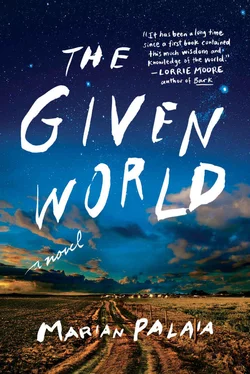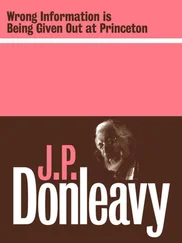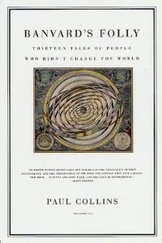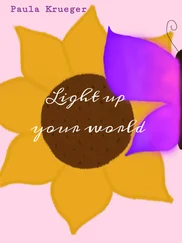I would never have traded either of you for diamonds, but sometimes I wonder. I can’t help it. I can’t help but think of all the children born as that stupid war was ending who maybe wouldn’t have been. Hard to imagine, once another being enters your universe. But I don’t have to tell you, do I.
Or why we couldn’t keep him. I was still so cracked open over Mick. So close to blowing it the first two times. Your father wanted to keep Slim and raise him. He loved that baby so much. But he let me give him away. And Slim is fine. His other “grandpa” still writes. We got a letter just last week.
This probably isn’t fair, writing you now with all of this. Maybe I think if I tell you what I know you can use it to find your way back. Not here necessarily — I think you’re probably gone from here for good — just back from wherever you are. There was so much emptiness in your voice the last time I talked to you. I keep thinking I’m going to get a call someday. From San Francisco. From someone other than you.
Obviously, this is not where I was meaning to go with this, or maybe it was. Either way, here we are. I started out just wanting to explain something, like where I was when I should have been with you guys. All three of you. At home, appreciating my family instead of a million miles away or at the damn window, envying the hawks their wings, their freedom. Christ. I was, I am, so bad at so many things.
I used to think making love with that boy was my original sin, like in the Bible, the sin that had already started to make the rest of my life tumble over, little by little, like dominoes. When you fell off the roof and nearly died, and then when Mick left, even before they lost him, I felt like I was paying for those afternoons in the hayloft, for sneaking out at night to meet that boy by the river, shuck my clothes like a lizard slipping its skin. I couldn’t help myself even if I’d wanted to, and I didn’t want to. It’s all I could think about. I wanted to melt into him, melt him, like butter. Now I wonder if it was the same for you. The not being able to help it. The feeling like God was going to make me pay and pay.
I just met that boy, your young man, the one time, when he came looking for you. It was hard to lie, and I think he knew. I really am the worst liar, and with you in the next room, listening, that made it even harder. I remember he was handsome, though, and tall. What was his name? Something old-fashioned. Darrell. I think that was it. And he was a gentleman. Very polite. Shook my hand when he left. Called me ma’am. He brought a little bouquet of wildflowers and you tore them apart after he was gone, a petal or a leaf at a time, taking your time, and scattered them around the yard. You had a look, girl, that scared me. Now I know what it was. I wonder if my mother saw that same look in me. Like an animal bent on escape. You did it. You were determined.
And is it any wonder you both wanted to go? Not at all.
I know you would not have left Slim if I hadn’t talked you into it. I didn’t know I wasn’t going to be able to keep him here. But I was still holding on for dear life, and so desperately believed if I kept believing, did everything just right, one day Mick would walk up that driveway, kick the dust off his boots, kiss me hello, and go upstairs to his books and his records and his guitar and draw me a picture of wherever he’d been. Then you could come home, and I could have my second chance.
I want so badly to explain all this to you in a way that makes sense to both of us. This is me, Riley, your mom, trying to figure out how to do that and not mess it up any more than I already have.
Your father, on the other hand, just says to tell you hello. Your father sends his love. He misses you a lot. So do I. And Cash. He’s old now, can’t catch a rabbit anymore. But he still tries.
I hope this finds you. I think I hope that. Maybe it’s too much. I have no idea where you are. Call if you can. Collect is fine. Happy New Year, sweetie.
I love you, Mom
8. The Last Thing You Need
“S o this orphan walks into a bar,” Cole says, to make Riley laugh, although there is no more to it, just the one line. It is not a joke at all. He gives her his best Elvis look: blue eyes narrowed (eyelashes ridiculously long), head cocked slightly right and down, the merest rumor of a smile at one corner of his mouth. She is five, maybe six years older than he is, which is not quite twenty-one, but he has a fake ID she pretends to believe even though it is an obvious hack job.
He watches as she consoles another regular, listens attentively to a story of love gone wrong, the inability to find someone new, the futility of trying.
“You just haven’t met the right person,” Riley says. “But you will. You have so much to offer.”
In one month, Cole has heard these same words come from that beautiful mouth at least ten times before, spoken to at least ten different women with ten different ex-girlfriends. Well, sometimes the ex-girlfriends overlap; it’s sort of that kind of a bar.
An hour later, she is pouring a club soda for a repeat wagoneer who is obviously hanging on by a weakening thread. “One day at a time,” Riley says, without apparent irony, and the gal repeats it.
“Yes,” she says.
Riley says, “Maybe a meeting?” Gently. No judgment. It’s that kind of bar too, sometimes. “I think there’s a two o’clock at St. Kevin’s.”
“You’re right, there is.” She downs her soda, squares her shoulders, and reaches across the bar for Riley’s hand. “You’re a doll, sweetheart. Thanks for saving my life, again.”
Riley pats her hand. “You’re going to be fine.”
When the woman leaves, Riley sighs. “Whoa,” she says, and pours herself a shot.
“Everyone loves the bartender,” she tells Cole later. “It doesn’t matter who it is.”
It does matter, he thinks, but it is just like her to believe it doesn’t. It matters that she’s nice to people and doesn’t act like she’s something special just because she can reach the bottles without climbing over the bar. And she’s funny. And pretty, sometimes. She has that mouth; he loves watching it — the way it never seems to be able to stay still even when she isn’t talking. And he loves how she gives everyone a bunch of second chances, because she knows that human beings are flawed. He knows this because she has told him, but he is not supposed to tell anyone else.
He brings her presents: strawberries, pizza, Valium, flowers he’s picked out of someone’s yard. When he brings the Valium, she says, “How did you know my favorite color is blue?” She cuts one in half, chases it down with a beer. She picks the toppings off the pizza and feeds the crust to a dog someone’s tied to a parking meter out front. The flowers go in a chimney glass, set on the bar by the beer taps. Customers ask where they came from. “My new boyfriend,” she says, and laughs. Cole watches her mouth when she does it.
He plays songs on the jukebox for her when he can tell she’s starting to wear down. Songs like “Brown Eyed Girl.” Even though it is not one of her very favorites, when he plays it he knows that she knows it is for her, even though her eyes are green, like his mother’s eyes were, the way he remembers them. The Van Morrison song she really loves is the one about Jackie Wilson, the one about heaven, and smiling. He sings the chorus to her, and often she will smile when he does, and this is what they do: flirt harmlessly, avoiding any complication, any chance of collateral damage.
The orphan joke is on him: he really is an orphan, his parents dead of a car wreck in the California desert east of Barstow, where the Mojave begins, and doesn’t end again (as far as his mother was concerned) until Albuquerque. She kept a diary, and in it she hated, with a steadfast determination, the desert; envisioned breaking down and having to walk until their knees buckled, the sun so bright and hot it filled the sky, with only a narrow, pale-blue band of not-sun just at the horizon. She imagined their skulls bleaching alongside cow skulls and scaly armadillo skeletons, and she didn’t like it at all. But there was contract work at Los Alamos, and a couple of times a year they had to go. When the station wagon rolled, Cole was thrown clear. He was six, and still dreams sometimes of sliding face-first through the sand, hands out in front of him, like a runner trying to touch third base before the throw comes wicked hard and fast from the outfield.
Читать дальше












